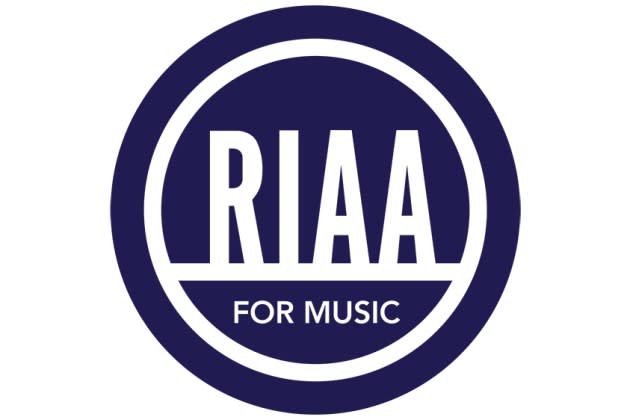U.S Recorded Music Revenue Grew by 8% in 2023, Per RIAA Annual Report, but Layoffs and Slowing Growth Are Cause for Concern

The U.S. recorded music industry grew its revenue by 8% in 2023, reaching an all-time high of $17.1 billion and marking eight consecutive years of growth. However, there’s no question that the streaming boom of the past decade, which produced years of double-digit growth, is leveling off and the industry is reacting with layoffs and talk of a “transformational moment” in the months and years to come.
Streaming continues to drive the business, making up 84% of total revenues and now totaling $14.4 billion – hitting an all-time high of 96.8 million paid subscriptions to on-demand services. Physical product (vinyl, CDs, cassettes) accounted for 11%; digital downloads for 3% and synch for 2%.
More from Variety
SZA, Karol G, Peso Pluma Lead RIAA Gold and Platinum 2023 Honorees
U.S. Recorded-Music Revenue Grows Almost 10% But Vinyl Sales, Streaming Subscriptions Level Off
However, the news arrives amid hundreds of layoffs at major music companies — totaling more than a thousand at Universal and Warner Music Groups, with more expected — concerns over AI, and efforts toward a new model for music companies, led by Lucian Grainge and Robert Kyncl, the CEOs of those companies. Their call for new models comes against the backdrop of a leveling off of streaming’s growth, after years of double-digit growth, as the markets mature in the U.S. and Europe.
Despite a grim start to 2024, the 2023 year-end results are indeed positive: Revenues from paid subscriptions grew to $11.2 billion in 2023, accounting for 78% of streaming revenues and nearly two-thirds of total revenues. Paid subscriptions, ad-supported services, digital and customized radio, social media platforms, digital fitness apps and others grew 8% to a record high $14.4 billion in revenue. However, limited tier subscriptions (services limited by factors such as mobile access, catalog availability, product features, or device restrictions) fell 4% to $1 billion. Services like Amazon Prime, Pandora Plus, music licenses for streaming fitness services, and other subscriptions are included in this category.
While the number of paid subscriptions to on-demand music services continued to grow to reached new highs in 2023, that growth is slowing after years of double-digit growth: The average number of subscriptions for the year grew 5.7% to 96.8 million, compared with an average of 91.6 million for 2022. Also, Music revenues from advertising supported on-demand services (such as YouTube, the ad-supported version of Spotify, Facebook, and others) grew at a slower pace than previous recent years, up 2% to $1.9 billion. Ad supported services contributed 11% of total 2023 recorded music revenues.
And physical formats continued their resurgence, up 11% to $1.9 billion. A 17 th consecutive year of growth, up 10%, vinyl again led the way and for the second time since 1987 outsold CDs in units (43 million vs. 37 million).
“Recorded music keeps reaching new heights as labels’ ‘all of the above’ commitment to meet fans everywhere they want to be continued to pay off for the entire music community,” said RIAA Chairman & CEO Mitch Glazier. “Licensing of social networks, fitness apps, and short form video are adding new value […] and physical sales once again boomed, with vinyl records delivering yet another double-digit increase.
“For artists, songwriters, and fans, this strong and sustained growth signals a time of incredible opportunity – with new formats, styles, and sounds rising up across innovative platforms and emerging ways to listen. As new services continue to get fully licensed at rates reflecting music’s incredible value, revenue for artists and songwriters will only continue to grow.”
“As music continues to soar and bring Americans together in new ways, new challenges continue to emerge – led by the mushrooming threat of generative artificial intelligence that, absent thoughtful and effective guardrails, put this dynamic growth and cultural reach at risk. No one has moved more quickly than the music industry to embrace responsible uses of this technology to create new possibilities and push human artistry forward,” continues Glazier. “Used responsibly, generative AI tools can take human creativity to new places. But irresponsibly, it could stifle a generation of artists across all mediums. RIAA and our members are committed to staying on the field every day, fighting with the music community for a pro-human, pro-creator future. Artists, songwriters, and their fans deserve nothing less.”
Head here for the full report.
VIP+ Analysis: Are DVDs Headed Down the Tubes? Data’s In
Best of Variety
From 'The Idea of You' to 'Apples Never Fall': The Best Book-to-Screen Adaptations to Read This Year
Sign up for Variety’s Newsletter. For the latest news, follow us on Facebook, Twitter, and Instagram.

